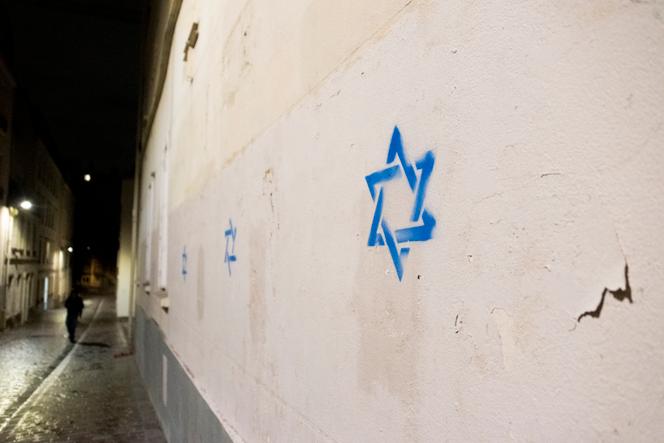


What do the spray-painted stencils of servicemen's coffins painted on walls in Paris, graffiti in Warsaw, Poland, calling for new elections in Ukraine, and stickers of the faces of "slain Ukrainian soldiers" on buildings in Germany have in common?
According to the latest security report published by Meta on Thursday, August 15, these various campaigns were all promoted online by the same network of fake Facebook accounts, as part of a campaign that attempted to "undermine Ukraine while pretending to support it," highlighting Ukrainian army losses, for example, or calling for new elections. The company's security researchers believe that this campaign, which they compared to "three-dimensional chess," had only very limited success.
The promotion by the same network of several such "physical" operations, mainly in France, Poland, Germany or Moldova, however, suggests that these actions were coordinated. "While we cannot confirm whether these events themselves and their online amplification were organized by the same individuals, it appears that some real-world events involved placing flyers with QR codes that led to the online operation's accounts on Telegram," also promoted by some fake Facebook pages, noted Meta.
Meta considers that the Facebook page of a self-proclaimed "Ukrainian art group," which in June claimed responsibility for tagging the coffins of French soldiers in Ukraine, was an integral part of this network. As were other pages, this time in Romanian, which, for their part, relayed the videos of a Moldovan involved in the Star of David graffiti, which had caused a stir when they appeared in November on the walls of buildings in the Paris region, are considered by French investigators as the fruit of a Russian interference operation.
Who controlled this network of fake pages, whose publications were also aimed at reaching the Ukrainian diaspora in Europe? Meta explained that it discovered digital traces linking this network to "individuals in Russia," including "some connected with people involved in numerous coordinated inauthentic behavior campaigns." The campaigns were carried out on behalf of the Russian Internet Agency, Yevgeny Prigozhin's disinformation company, Social Design Agency, which created the "Doppelgänger" disinformation network, or the pro-Russian propaganda media NewsFront.
This mix of different former "customers" suggests that these campaigns may have been the work of a company that had hired specialists from several competitors, and collaborated with one or more Russian services. It had to be a company with a sizeable budget: According to figures published by Meta, the 43 fake pages spent around €35,000 on advertising to make their content more visible, and they also bought "likes" and subscribers.
